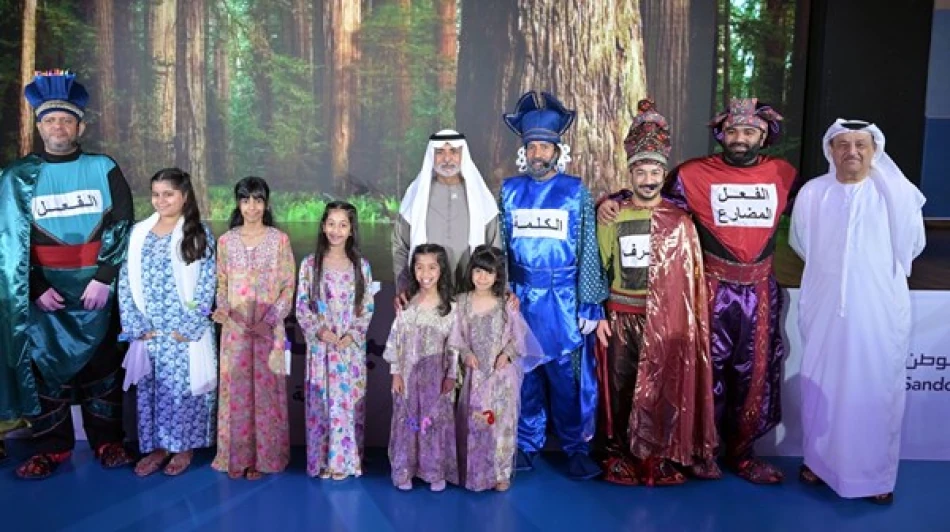
Empowering Youth: UAE's Summer Programs Strengthen National Identity
UAE Doubles Down on Arabic Language and National Identity Through Summer Programs
The UAE is intensifying efforts to preserve its national identity and Arabic language among younger generations through comprehensive summer programs that blend traditional culture with modern technology. Sheikh Nahyan bin Mubarak Al Nahyan, Minister of Tolerance and Coexistence, recently highlighted the success of these initiatives, which now operate across 17 government and private schools in Abu Dhabi alone, signaling a strategic shift toward cultural preservation amid rapid modernization.
A Strategic Response to Cultural Challenges
The Al Watan Fund's summer programs represent more than educational activities—they're a calculated response to the cultural dilution that often accompanies rapid economic development. As the UAE positions itself as a global business hub, attracting millions of expatriates who now comprise over 80% of the population, maintaining Emirati identity has become a national priority.
Sheikh Nahyan emphasized that the programs embody President Sheikh Mohammed bin Zayed Al Nahyan's vision of "strengthening our identity, religion, and values among new generations for the UAE's future." This directive reflects growing concerns across the Gulf about cultural preservation in increasingly cosmopolitan societies.
Four Pillars of Cultural Education
Social Dimensions of National Identity
The programs focus heavily on arts, language, and heritage through theatrical performances, traditional crafts workshops, and Arabic calligraphy sessions. Students create artwork reflecting national symbols, historical narratives, and environmental heritage—activities designed to forge emotional connections with Emirati culture beyond mere academic study.
Technology Integration
Recognizing that cultural preservation must evolve with the times, the programs incorporate artificial intelligence workshops that explore how technology can enhance national identity. Students develop electronic applications featuring traditional Emirati games, demonstrating how heritage can find new expression through digital platforms.
Sustainability and Future-Building
Innovation labs cover nuclear energy, renewable resources, and clean technology—sectors where the UAE has made significant investments. This approach connects national identity with the country's economic diversification strategy, showing students how tradition and progress can coexist.
Past-Present Integration
Creative writing workshops using AI tools and storytelling sessions about Emirati personalities help students understand their heritage while developing modern skills. The "UAE Through Zayed's Vision" exhibition showcases student work across eight pavilions covering both cultural roots and future industries.
Regional Context and Global Implications
The UAE's approach mirrors similar initiatives across the Gulf, where governments balance globalization with cultural preservation. Saudi Arabia's Vision 2030 includes extensive cultural programs, while Qatar invested heavily in heritage preservation ahead of the 2022 World Cup. However, the UAE's integration of technology with traditional culture represents a more sophisticated approach than seen elsewhere in the region.
This strategy also reflects lessons learned from other global cities. Singapore's successful maintenance of multilingual education and cultural identity despite rapid modernization provides a model, while Dubai's experience shows how cosmopolitan growth can dilute local culture without deliberate preservation efforts.
Economic and Social Investment
The programs' emphasis on parental involvement and community partnership addresses a critical challenge: ensuring cultural education extends beyond school walls. By engaging parents, artists, writers, and school administrators, the initiative creates a broader ecosystem supporting cultural preservation.
Fuad Darwish, Executive Director of Al Rabea Private Academy, noted that the programs contribute to building "a creative generation, aware of its identity and capable of leadership." This language suggests the UAE views cultural education as essential for developing future leaders who can navigate global markets while maintaining local values.
Measuring Success in Cultural Preservation
The programs' expansion across 17 schools and high parental participation rates indicate genuine community support. However, the real test will be whether participants maintain stronger connections to Emirati culture and Arabic language proficiency compared to peers in traditional educational settings.
The initiative's focus on continuous evaluation and adaptation suggests officials understand that cultural preservation requires ongoing refinement. As the UAE continues attracting international talent and investment, these programs may become templates for other rapidly developing nations facing similar identity challenges.
The success of these summer programs could influence broader educational policy across the Emirates, potentially leading to year-round integration of cultural and technological learning. For a nation betting its future on human capital development, ensuring that future leaders remain rooted in local culture while globally competitive represents both a challenge and an opportunity that extends far beyond summer vacation activities.
Most Viewed News

 Layla Al Mansoori
Layla Al Mansoori






